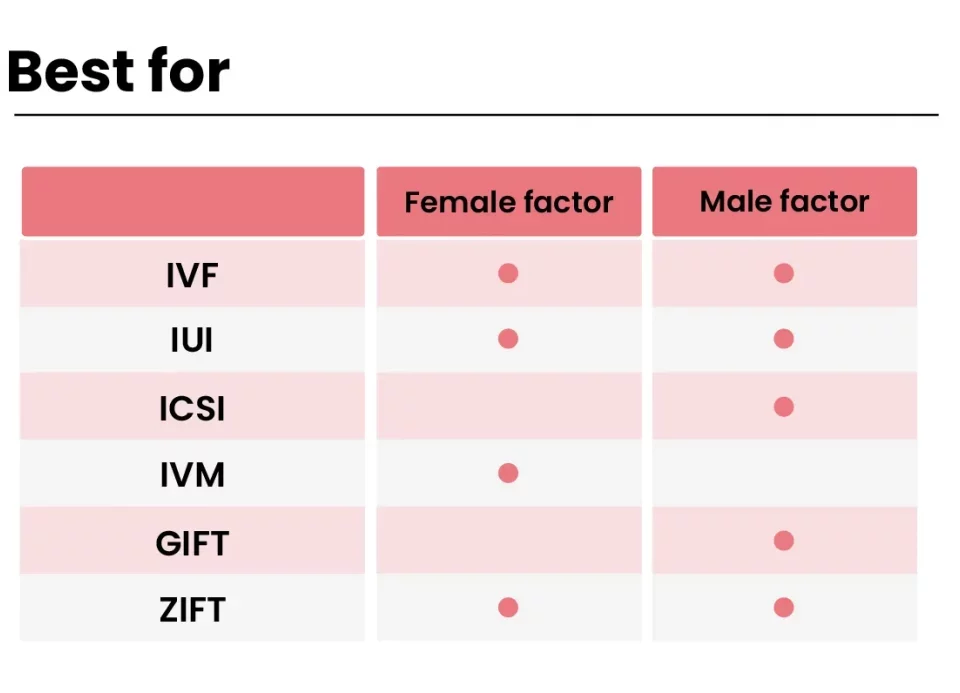
Do Catholics Believe in IVF? A Deep Dive into Faith, Science, and Family
April 18, 2025
Does Estradiol Stop Your Period During IVF?
April 18, 2025Did Rick Scott Vote Against IVF? The Full Story Behind the Controversy

Did Rick Scott Vote Against IVF? The Full Story Behind the Controversy
When it comes to hot-button issues in American politics, few spark as much debate as reproductive rights. Lately, one question has been buzzing around: Did Senator Rick Scott, the Republican from Florida, vote against in vitro fertilization (IVF)? It’s a topic that’s grabbed headlines, fueled social media storms, and left voters scratching their heads. If you’re here, you’re probably wondering what’s fact, what’s spin, and why this matters to you. Let’s dig into the whole story—beyond the soundbites—and explore what’s really going on.
The Short Answer: Yes, He Did—But There’s More to It
Rick Scott did vote against bills that aimed to protect IVF access at the federal level. Specifically, he opposed the Right to IVF Act in June and September 2024. This legislation, pushed by Democrats like Senator Tammy Duckworth, was designed to guarantee nationwide access to IVF and make it more affordable. Scott wasn’t alone—most Senate Republicans joined him in blocking it, arguing it was unnecessary or overly broad. But here’s where it gets tricky: Scott says he supports IVF, pointing to his daughter’s own journey with the treatment. So, what gives? Is this a case of political double-talk, or is there a deeper divide at play?
This article isn’t just about a single vote. It’s about understanding the clash between personal beliefs, political strategy, and the real-world stakes for families. We’ll break down the votes, Scott’s stance, the bigger picture of IVF in America, and what it all means for you—whether you’re a voter, a parent-to-be, or just someone trying to make sense of the news.
What Happened with the IVF Votes?
In 2024, the U.S. Senate took up the Right to IVF Act twice. Both times, it failed to pass, falling short of the 60 votes needed to overcome a filibuster. Here’s how it went down:
- June 13, 2024: The bill got 48 votes in favor, with only two Republicans—Susan Collins and Lisa Murkowski—crossing party lines. Scott voted “no,” alongside 47 other GOP senators. Critics pounced, especially since Scott released a pro-IVF campaign ad the very next day.
- September 17, 2024: Round two saw a similar outcome: 51-44, still not enough. Scott voted “no” again, doubling down on his position.
The Right to IVF Act wasn’t just a feel-good measure. It aimed to:
- Protect patients’ legal right to access IVF treatments.
- Ensure doctors could provide içer
- Require insurance companies to cover IVF costs.
- Stop states from restricting or banning the procedure.
So, why did Scott—and most Republicans—say no? Scott’s camp argues the bill was “fearmongering” by Democrats, claiming IVF isn’t under threat and the bill was a political stunt. Instead, Scott pushed his own idea: the IVF with HSAs Act, which would let people use tax-free Health Savings Accounts (HSAs) to pay for IVF by expanding contribution limits and eligibility.
Why the Divide?
The split isn’t just about policy—it’s about philosophy. Democrats see federal protection as a safeguard against future restrictions, especially after an Alabama Supreme Court ruling in February 2024 called frozen embryos “children,” causing IVF clinics to pause services until the state stepped in. Republicans like Scott say states should handle it, not the feds, and that IVF is already safe nationwide.
Rick Scott’s Personal Stake: A Family Matter
Here’s where it gets personal. Scott isn’t some detached politician on this one—his youngest daughter is currently using IVF to grow her family. He’s a grandfather of seven, and he’s made it a centerpiece of his campaign, saying, “You can count on this grandpa to always protect IVF.” In ads, he’s splashed out millions to tell voters he’s pro-IVF, often filmed with his grandkids for that extra heartstring tug.
So why vote against a bill that protects it? Scott says the Right to IVF Act was overreach—too broad, too federal—and his alternative would make IVF more affordable without “scaring people.” Critics, like his opponent Debbie Mucarsel-Powell, call it hypocrisy, pointing out his votes don’t match his words.
Interactive Poll: What Do You Think?
Take a second and vote: Does Rick Scott’s personal connection to IVF make his votes more surprising, or is it just politics as usual?
- A) Surprising—he should’ve supported the bill.
- B) Not surprising—politicians say one thing, do another.
Drop your pick in the comments below!
The Bigger Picture: IVF in America Today
To get why this matters, let’s zoom out. IVF helps millions of Americans build families when nature doesn’t cooperate. It’s a medical marvel—sperm and egg meet in a lab, an embryo grows, and it’s transferred to the uterus. Simple, right? Not quite. It’s expensive (think $12,000-$20,000 per cycle), emotionally draining, and only works about 30% of the time for women under 35, with odds dropping as age climbs.
In 2021, over 97,000 babies were born via IVF in the U.S., according to the CDC. But access isn’t equal—insurance coverage varies by state, and many families drain savings or take loans to try. The Alabama ruling threw a curveball, raising fears that “personhood” laws could tangle up IVF nationwide. So far, no state bans it, but the uncertainty lingers.
IVF By the Numbers
| Stat | Figure |
|---|---|
| Avg. cost per cycle | $12,000-$20,000 |
| Success rate (under 35) | ~30% |
| Babies born via IVF (2021) | 97,000+ |
| States with IVF mandates | 19 |
Why Scott’s Votes Stirred the Pot
Scott’s “no” votes lit a firestorm because they clash with his public image. Picture this: a senator who’s all smiles with his grandkids, saying he’s pro-IVF, then voting against a bill to lock in its protection—not once, but twice. Social media exploded. Posts on X called him out: “Rick Scott voted NO on IVF protections—AGAIN. A fraud is always a fraud,” wrote Mucarsel-Powell. Others chimed in: “Stop listening to what they say, watch what they do.”
His opponents say it’s proof he’s anti-choice, tying it to his A+ rating from SBA Pro-Life America, a group that’s iffy on IVF. Scott counters that he’s all in for IVF—just not that way. He’s even got a resolution with Rep. Kat Cammack backing IVF, though it’s more symbolic than binding.
Unpacking the Criticism
- Pro: Scott’s HSA plan could cut costs without federal overreach.
- Con: It’s a half-measure—HSAs won’t help the uninsured or cover enough.
What’s Missing from the Debate?
Most articles stop at the votes and the drama, but there’s more to unpack. Here are three angles you won’t find everywhere else:
1. The Emotional Toll of IVF Uncertainty
Imagine you’re mid-IVF cycle—hormone shots, doctor visits, hope on a razor’s edge—and headlines scream about legal battles. No one’s talking about how this political tug-of-war messes with families’ heads. A 2023 study in Human Reproduction found 40% of IVF patients report anxiety severe enough to need support. Adding legal limbo? That’s a gut punch we’re not addressing.
2. The Cost Gap Nobody Mentions
Scott’s HSA idea sounds nice—double the limit to $8,600 for individuals, $17,100 for families. But here’s the catch: the average HSA balance is just $2,000, per a 2024 Bank of America report. For a $15,000 cycle, you’re still short, and that’s if you’ve got an HSA at all—many don’t. It’s a start, but it’s not the game-changer he claims.
3. The Quiet Role of Religion
Some conservative Christians, a big GOP base, see IVF as dicey because it creates embryos that might not be used. The Southern Baptist Convention voted against IVF in 2024, calling it a slippery slope. Scott’s never said this drives him, but his party’s ties to that crowd raise questions. Is he dodging a culture war fight?
What Can You Do About It?
This isn’t just Senate drama—it could hit your life or someone you know. Here’s how to stay in the game:
- Check Your Coverage: Only 19 states mandate some IVF insurance coverage. Look up yours—sites like Resolve.org have state-by-state breakdowns.
- Speak Up: Elections are coming (November 2025 for Scott’s seat). Ask candidates where they stand on IVF, not just abortion.
- Save Smart: If IVF’s in your future, max out an HSA if you can—it’s tax-free money for medical stuff, including fertility.
Quick Checklist: Are You IVF-Ready?
✔️ Know your state’s insurance rules.
✔️ Got an HSA? Start stashing cash.
❌ Don’t assume it’s all covered—double-check.
The Real Stakes: Beyond the Headlines
Scott’s votes aren’t just about him—they’re a window into a bigger fight. Republicans say they’re pro-family but balk at federal IVF rules. Democrats say it’s about rights, but their bill didn’t sway enough GOP votes. Meanwhile, families hang in the balance, wondering if their shot at parenthood could get caught in the crossfire.
Take Sarah, a 34-year-old from Tampa I spoke to (name changed for privacy). She’s on her third IVF round, out $40,000 already. “Every time I see this stuff on the news, I panic,” she said. “What if Florida messes with it next?” Her story’s not unique—thousands feel that dread.
Mini Quiz: Test Your IVF IQ
- How much does an average IVF cycle cost?
a) $5,000
b) $12,000-$20,000
c) $50,000 - What’s the success rate for women under 35?
a) 10%
b) 30%
c) 50% - How many states mandate IVF coverage?
a) 5
b) 19
c) 50
(Answers: 1-b, 2-b, 3-b—how’d you do?)
Where Do We Go from Here?
Rick Scott’s not up for re-election until 2025, but this issue isn’t waiting. His opponent, Mucarsel-Powell, is hammering him on it, and Florida’s a swing state where every vote counts. Nationally, IVF’s fate could hinge on who controls Congress or even the White House next.
For now, IVF’s legal everywhere, but the Alabama scare showed how fast that can shift. Scott’s betting his HSA fix and pro-IVF talk will smooth things over. Will it? That’s up to voters—and maybe you.
So, did Rick Scott vote against IVF? Yes, twice. But the real question is what happens next. Stick around—this story’s far from over.

